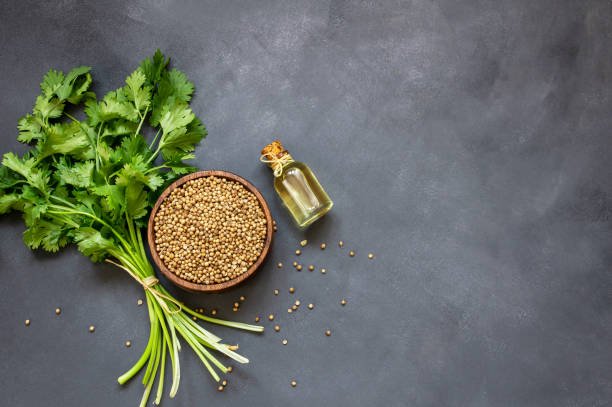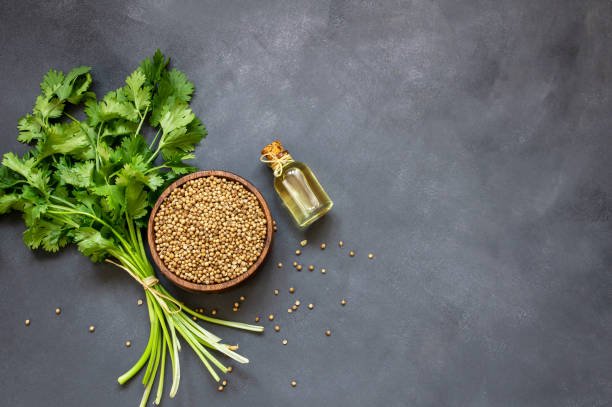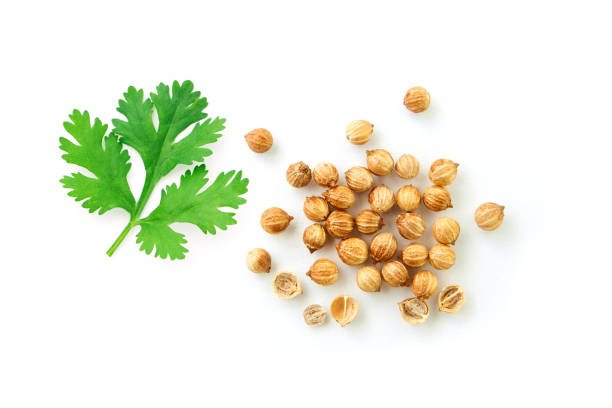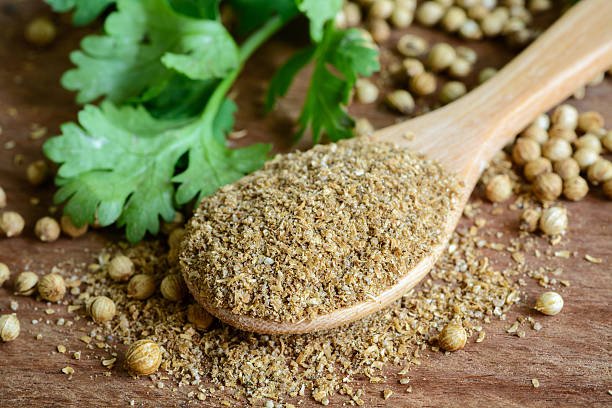Coriander Seeds
Scientific Name: Coriandrum sativum
Common Name: Coriander
Botanical Description
Coriander is an annual herb with a strong aromatic scent, reaching up to 50 cm in height. It has finely divided upper leaves, small white or pinkish flowers, and produces small, round fruits that are yellow to brown in color.
Varieties
Coriander is a monotypic genus, but its different parts are used in various ways:
Leaves: Used fresh as an herb in cooking.
Seeds: Dried and used as a spice
Benefits and Medicinal Uses
Digestive Aid: Coriander is used to relieve gas and promote digestive health.
Antibacterial and Antifungal: It exhibits antimicrobial properties.
Nervous System Soother: May help calm the nervous system and alleviate insomnia.
Cultivation Methods
Soil Preparation: Requires well-drained soil rich in organic matter.
Seed Sowing: Sow seeds at a depth of 1 cm, spacing plants 5-10 cm apart.
Watering: Needs regular watering to maintain soil moisture without waterlogging.
Light: Requires 4-6 hours of direct sunlight daily.
Parts Used Medicinally
Both leaves and seeds are used in medicinal and therapeutic applications.
Planting Season
Best sown in spring or fall, and can be grown year-round in warmer regions.
Active Components
Volatile Oils: Contains compounds like linalool and pinene.
Vitamins and Minerals: Such as vitamin C, vitamin K, and potassium.
Export Details Worldwide
Types: Coriander seeds
Packaging: Bags
Container: 20 feet
Weight: 25 kg or 50 kg
Sorting, packing, and packaging: Automatic
Origin: Egypt





